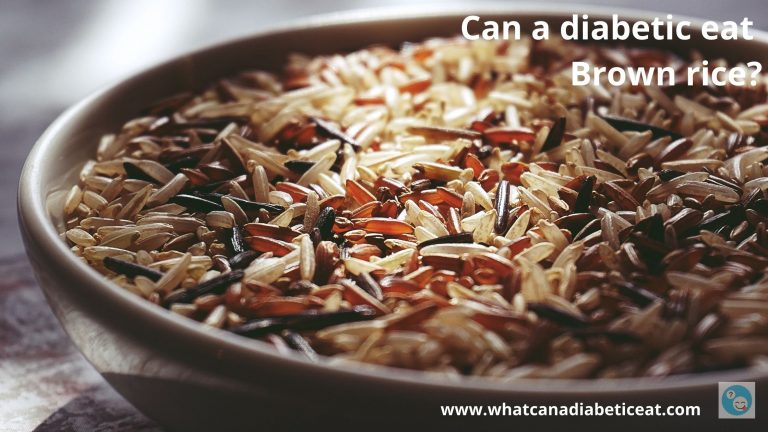Can a diabetic eat Brown rice?
Yes, a diabetic can eat brown rice. Brown rice has low glycaemic index (GI) and so cannot spike blood sugar levels. However, as brown is high in carbohydrates, a diabetic can eat brown rice in moderation. Eating brown rice in moderation will prevent any adverse effects of high carbohydrate levels. Moreover, brown rice in moderate quantity can help regulate blood sugar levels and prevent diabetes complications. Brown rice is high in dietary fibre, vitamins, minerals and antioxidants that can help manage diabetes better and promote overall well-being.
What are the benefits of brown rice?
Brown rice is whole grain and hence offers great health benefits. To begin with, being whole grain, brown rice is high in dietary fibre. Dietary fibre is helpful in boosting metabolism and regulating blood sugar as well as cholesterol. High fibre diet generally helps with digestion and easier bowel movements which is good for a diabetic. When you eat food high in fibre, you feel full for longer and eat less. This helps in weight loss. Brown rice has low glycaemic index (GI) and hence does not cause serious blood sugar spikes.
Is brown rice better than white rice for a diabetic?
Brown rice can offer more benefits to a diabetic than other types of rice. Brown rice has lower glycaemic index than white rice. There are more micronutrients in brown rice than in white rice. Thus, brown rice is lot better than white rice for a diabetic. Moreover, brown rice has a nuttier taste and chewier texture than white rice. When you cook biryani next time, may be you can eat little more biryani if it is cooked from brown rice instead of white.
There is however one adverse fact about brown rice that a diabetic must be aware of. Brown rice contains much higher levels of arsenic than white rice. Arsenic in brown rice can cause serious damage to health if a diabetic eats large amounts of brown rice.
While brown rice is high in fibre, it is important to understand why brown rice is high in fibre. Brown rice is high in fibre because of bran and germ that are intact in brown rice. The bran and germ that give high fibre to brown rice can be hard on yoru gut. In some cases, the bran and germ in brown rice can irritate the gut or constipation or diarrhoea or bloating depending on how your gut responds to the bran or germ. Hence a diabetic must be careful when eating brown rice.





